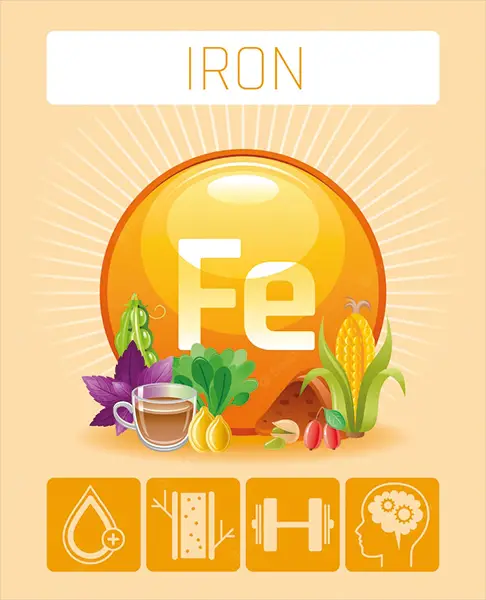Pregnancy is a period in a woman’s life when she must cherish her body and love herself above all else. A pregnant lady goes through a lot during her pregnancy, including discomfort, chronic nausea, never-ending vomiting, migraines, bodily pains, and much more, that is why multivitamins in pregnancy are extremely important. A pregnant woman needs a lot of nourishment to meet her baby’s developmental demands. Her folic acid, vitamins, iron, calcium, and other mineral stocks should be enough to meet her and her baby’s needs. Multivitamins are essential in any trimester of pregnancy since they are required by both the mother and the growing baby.
Multivitamins in pregnancy are essential for a baby’s appropriate neurological development, as well as his or her physical and mental well-being. The fact that a lack of these can be life-threatening shows the significance of these. Some facts that will stress the necessity and need for multivitamins in pregnant women’s bodies are included below.

1. Folic Acid Requirement in Pregnancy
Folic acid is an important multivitamin in pregnancy and is required both during and before pregnancy. Folic acid is the most important multivitamin supply for a growing foetus, and a lack of it might result in neural birth abnormalities in the future kid. Folic acid should never be ignored in pregnancy since it might affect both the mother and the fetus thus it is the most important multivitamin in pregnancy among all. Folic acid as a multivitamin in pregnancy is required for proper neurological function and development in a baby. For pregnant women, the daily recommended intake of folic acid is 400 microgram tablets. A case study was done over 243 pregnant women that relates folic acid deficiency and birth defects.
2. Importance of Calcium in Pregnancy
The use of calcium supplements is a mandatory requirement during pregnancy, especially during the second trimester of pregnancy, because the baby’s bone and skeletal parts are developing during the second trimester, and thus a good and complete store of calcium should be present in the body both during and after pregnancy. A pregnant woman should consume milk twice a day in addition to supplementary calcium to replenish calcium reserves in the body so that the baby’s bones and skeletal system mature regularly and without defect or deformity during pregnancy.
3. Phosphorus – A Necessary Component in Pregnancy
Phosphorus is also another essential multivitamin in pregnancy. This mineral is necessary by the body of a pregnant woman for proper heart rhythm, muscular contractions, and the formation of a baby’s skeleton. A lack of phosphorus in any trimester of pregnancy can result in serious after-birth problems such as irregular heart rhythms and disorders associated with it. A pregnant woman should meet her daily phosphorus needs, as well as supplement if necessary and suggested by a healthcare expert.
4. Iodine – An Important Part of the Diet During Pregnancy
The need for iodine as a multivitamin in pregnancy is greater than in normal individuals because iodine is required for the normal developmental processes of the fetal body and its importance in the development of five of a growing baby’s senses, which are hearing, touching, smelling, sight, and tasting. Another crucial function of iodine inside a developing fetus is the development of coordination and awareness. It is therefore suggested that women have adequate iodine storage before conception, during pregnancy, and while nursing. Iodine is related to the thyroid gland, which is associated with the release of several of the body’s important hormones. The thyroid gland’s working and functioning play a major role in the growth of the body. All in all, iodine should be maintained to a normal level throughout the period of pregnancy. Another case study was done for iodine deficiency and pregnancy.
5. Vitamin D Stores – Extremely Important in Pregnancy
Vitamin D is normally produced in our bodies when our skin is exposed to direct sunlight, hence it is critical that one be exposed to sunlight at some point during the day. The vital function of vitamin D within our bodies is to control the metabolism of minerals such as calcium and phosphate, which in turn preserves our bones, muscles, and teeth in excellent condition. Pregnant women should aim to incorporate all possible sources of vitamin D in their diet, and if they are insufficient, they should visit a healthcare practitioner about adding extra sources of vitamin D to their daily routines that will be based on capsules and tablets. It is an important multivitamin in pregnancy. The sources of vitamin d are red meat, eggs and fish. The daily recommended dose of vitamin d is 400 mg, it should not be exceeded by this amount because that can be harmful for both mother and baby. There was a case study where a group of pregnant moms were tested for vitamin D levels and deficiency.
6. Maintain Sufficient Iron Stores to Prevent Anemia During Pregnancy
When a woman becomes pregnant, her doctor orders a full blood count to ensure that her hb or Hemoglobin level is normal. She should have enough iron in her body to maintain a healthy Hemoglobin level. When the body’s iron stores are depleted, hb drops, and the doctor prescribes iron to the mother so that her blood level does not drop to the point where it begins to hurt the baby. The infant needs adequate oxygen and blood to develop healthily during pregnancy and it is commonly assumed that when a woman suffers from anemia during pregnancy, so does her kid.

7. Other Supplements and Multivitamins in Pregnancy
In addition to the supplements and multivitamins described above, some others can assist to promote a healthy pregnancy, such as omega-3 supplements, which are claimed to protect the baby from being born prematurely during pregnancy. Similarly, using probiotics throughout pregnancy helps to maintain the mother’s elevated blood sugar during pregnancy, which is sometimes referred to as gestational diabetes.
Awareness of these all-essential multivitamins in pregnancy is critical at this time, and it is especially vital for pregnant women to understand since it may help them avoid a lot of harm and insufficiency during and after pregnancy. The timely administration of these essential supplements can meet the needs of a developing baby and her mother during and after the delivery of a healthy infant. I advise all pregnant women to educate themselves on a healthy pregnancy and the well-being of their unborn kid.



